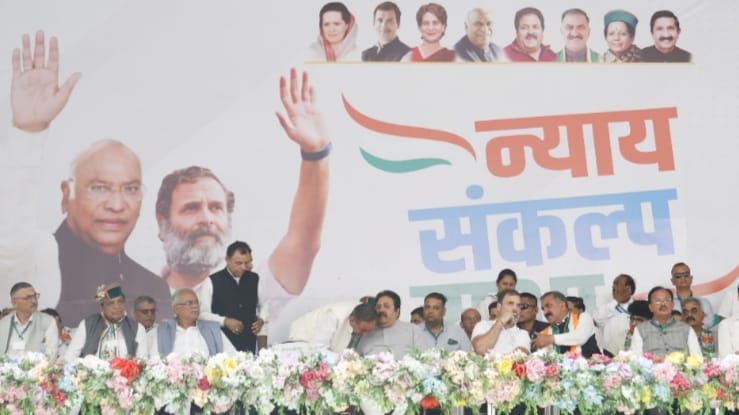Colonel Dhaniram Shandil Criticizes PM Modi Over Agniveer Scheme and National Security Concerns
Colonel Shandil began his statement by criticizing the BJP’s decade-long rule, describing it as a “dark chapter” in India’s history. He highlighted the introduction of the Agniveer scheme as a pivotal misstep, arguing that it has “ruined the future of the youth of India, the youngest country in the world.” According to Shandil, the scheme’s policy of retiring soldiers after a mere five-year temporary commission is detrimental, especially in a country where the standard retirement age for government employees is 60. This, he asserts, not only disrupts the lives of young recruits but also weakens the armed forces’ overall strength.
A central point of Shandil’s critique is the inadequacy of the training period under the Agniveer scheme. Military experts widely acknowledge that it takes at least seven years to properly train a soldier to be fully effective on the battlefield. The Agniveer scheme, with its five-year tenure, fails to provide sufficient training and experience, potentially deploying inadequately prepared soldiers into combat situations. Shandil emphasized that this could result in higher casualty rates and diminished operational effectiveness, effectively sending young jawans to face life-threatening scenarios without the necessary preparation.
The Colonel referenced the last traditional recruitment drive in 2019-20, which saw 78,692 candidates selected from across India out of a target of 87,152. Notably, about 24% of the recruits came from Punjab, Haryana, and Himachal Pradesh. However, recruitment was put on hold for two years due to the COVID-19 pandemic, after which the Agniveer scheme was introduced. Shandil criticized this move, claiming it has devastated the prospects of many young Indians who aspired to serve in the military.
Colonel Shandil also questioned Modi’s leadership, noting that at 74 years old, Modi himself will retire from politics next year according to his own rules. Yet, he is currently seeking another term in office in the upcoming 18th Lok Sabha elections. Shandil argued that the Prime Minister’s tenure has disproportionately benefited the wealthy while further impoverishing the poor, and accused Modi of failing to fulfill his earlier promises such as bringing back black money, depositing Rs 15 lakh into every citizen’s bank account, doubling farmers’ incomes, and developing 100 smart cities.
The Health Minister emphasized that many of these promises, like bringing back black money, were later dismissed by BJP leaders as mere election slogans. He suggested that the current administration’s focus is far removed from the promises made to the electorate a decade ago, with significant disparities in wealth and living conditions persisting. Shandil predicted that the BJP’s ambition of crossing 400 seats in the upcoming elections would fall short, as the electorate is now well aware of the government’s failures.
Moreover, Shandil pointed to the specific regional security concerns in Himachal Pradesh, which shares a border with China. He argued that the Agniveer scheme leaves these borders less secure, as the policy does not provide a stable, experienced military force. This, he claims, directly contradicts Modi’s assertions of being a protector of national security.
Colonel Shandil’s strong stance reflects the broader discontent within the Congress party and among various sections of the public regarding the NDA government’s military recruitment policies. By foregrounding the personal impact on young recruits and the potential risks to national security, he aimed to underscore the disconnect between the government’s rhetoric and its actions.
As the election season heats up, the debate over the Agniveer scheme and broader national security issues is likely to intensify. Colonel Shandil’s rebuttal is part of a larger strategy by the Congress to challenge the BJP’s narrative and highlight what they see as the incumbent government’s failures. The upcoming elections will reveal whether these arguments resonate with voters, particularly in regions like Himachal Pradesh where local security concerns are paramount.



